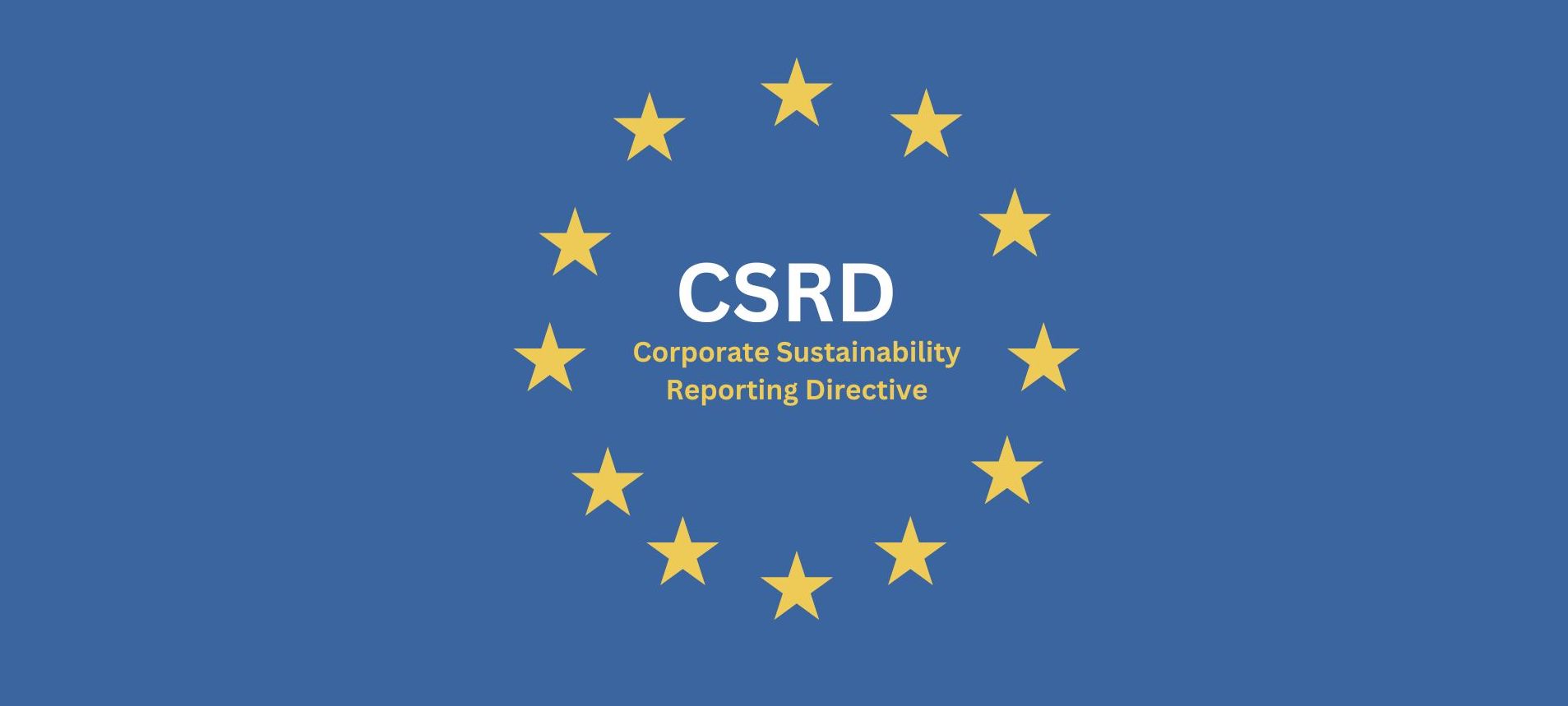The Corporate Sustainability Reporting Directive (CSRD) is a European Union (EU) legislation that requires EU businesses, including qualifying EU subsidiaries of non-EU companies, to disclose their environmental and social impacts and how their environmental, social, and governance (ESG) actions affect their business.
It aims to provide clarity for investors, analysts, consumers, and other stakeholders to better evaluate EU companies’ sustainability performance and related business impacts and risks.
Our Sustainability team is dedicated to guiding organisations through their CSRD journeys, ensuring seamless alignment with regulatory requirements and best practices. We elaborate on this new initiative below.
► THE CSRD FOLLOWS THE CONCEPT OF DOUBLE MATERIALITY WHICH REQUIRES ORGANISATIONS TO CONSIDER THE COMPANY’S IMPACT ON SOCIETY AND THE ENVIRONMENT (AN OUTWARD LENS OF IMPACT MATERIALITY), AS WELL AS HOW SUSTAINABILITY AND CLIMATE-RELATED RISKS AND OPPORTUNITIES CAN IMPACT FINANCIAL PERFORMANCE (THE INWARD LENS OF FINANCIAL MATERIALITY).
This is the first time we have seen the mandatory application of a double materiality assessment from a reporting directive.
- What this means is that many entities will have to upskill on how to apply this within their organisation. Being an onerous process, companies are likely to either outsource the work or consider developing a dedicated sustainability department.
- Notably, each material matter must have an associated policy. This requires the development of a strategy or management decision that includes action plans and targets for every material sustainability issue.
► THE INARGURAL CSRD-COMPLIANT MANAGEMENT REPORT IS SET TO BE PUBLISHED IN 2025. WHO WILL BE IMPACTED AND WHAT WILL THIS MEAN?
The CSRD mostly applies to EU companies. However, there is scope for non-EU parent companies who have a significant footprint within the EU to have to report against this Directive
The CSRD will apply to all companies with:
- Over 250 employees.
- More than 40 million € in annual revenue.
- More than 20 million € in total assets.Publicly listed entities that have more than 10 employees or 20 million € revenue.
- International and non-EU companies with more than 150 million € annual revenue within the EU and which have at least one subsidiary or branch in the EU exceeding certain thresholds.
The mandatory framework will significantly impact companies that are required to report, as well as those that do not (yet) have a reporting requirement, as they might be asked to communicate their sustainability information to stakeholders/supply chain partners.
What does this mean?
- This means that even non-EU parent companies who have a substantial EU impact are required to comply with CSRD. However, this is only from 2029 (where they report on 2028 data within their 2029 financial year report).
- This gives those based outside the EU some time to get CSRD ready, however, it is best to begin this journey soon as the Directive imposes strong internal changes which should be grappled with before 2028.
► CSRD REPORTING COMPLIANCE: BEST PRACTICES FOR VALUE CHAIN INTEGRATION AND DATA MANAGEMENT
Value Chain
The Directive mandates the assessment and reporting of upstream and downstream value chain impacts, closely tied to the double materiality assessment. This process is time-consuming and data-intensive, highlighting the need for companies to either outsource the work or establish a dedicated department to manage it effectively.
Noteworthy – a company’s level of operational control will impact how certain information is disclosed. For example, if a parent company has operational control over company A, they are required to include 100% of company A’s Scope 1 & 2 GHG Emissions within their disclosures even if they only account for 20% of the parent company’s portfolio.
Data Management
Once the materiality process has been completed, this informs the entity on the data disclosures that they should be reporting on. Laid out in the ESR sector agnostic Standards E1-5, S1-4, and G1, the Directive still requires, at least until sector-specific standards are published (which is likely to be in 2026), that over and above the material matters found in the Standards, that entity-specific matters and associated metrics are reported on.
► CSRD’s CLIMATE DISCLOSURE MANDATES NON-MATERIAL ENTITIES TO EXPLAIN THEIR CONCLUSIONS. DISCOVER WHY THIS UNIQUE APPROACH IS CRUCIAL FOR YOUR ORGANISATION.
The rest of the ESG Standards encourage, but do not require that an explanation be incorporated in the report if they are found to be immaterial.
The climate change (ESRS E1) Standard requires a high level of disclosure, representing a pivotal moment as companies face growing legal pressures to report on their climate impacts.
With its comprehensive scope, alignment with the Paris Agreement, double materiality approach, standardised metrics, assurance requirements, and harmonisation with the CSRD, ESRS E1 stands as a pioneering climate-related disclosure standard. It aims to enhance transparency and accountability in the climate actions and impacts of EU companies.
Ince is proud to offer certified experience in CSRD compliance. Partner with our Sustainability Advisory Team for tailored reporting solutions that integrate seamlessly into your current processes, help you achieve CSRD objectives, and ensure full alignment with regulatory requirements and industry best practices. Ready to navigate your CSRD journey with confidence? Contact our Sustainability Advisory team to get started!




 42 Wierda Road West,
42 Wierda Road West,



